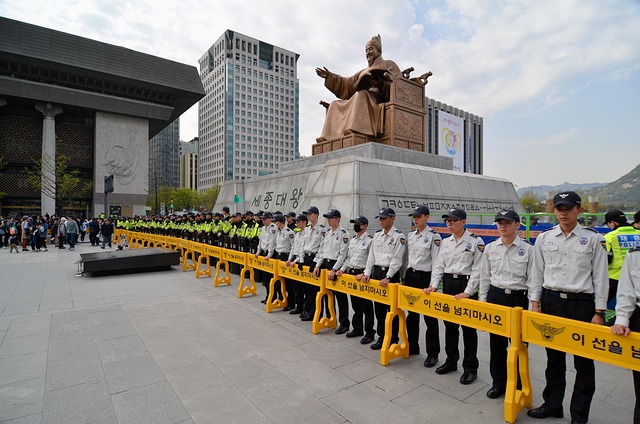Navigating plea bargains in felony cases is a strategic process where defendants accept reduced charges or sentences in exchange for pleading guilty to more serious offenses. This complex, state-specific dynamic requires attorneys to understand legal precedents and business models to secure favorable outcomes while ensuring clients receive fair treatment. Skilled representation can lead to reduced sentences, alternative sentencing, or dismissals, balancing justice and efficiency through transparent communication and ethical practices.
“Uncovering the intricacies of finance crime probes, this article delves into the strategic realm of plea bargains—a pivotal tool within criminal justice. We explore how these agreements navigate the complex dynamics of felony cases, balancing justice and efficiency. From understanding plea deals to examining their ethical implications, we break down the steps involved in the process. By analyzing ‘Navigating Plea Bargains in Felony Cases’, readers gain valuable insights into this critical aspect of legal proceedings.”
- Understanding Plea Bargains: A Key Strategy in Criminal Justice
- The Dynamics of Felony Cases and Their Unique Considerations
- Navigating the Process: Steps Involved in Plea Bargaining
- Balancing Justice and Efficiency: Ethical Implications of Plea Deals
Understanding Plea Bargains: A Key Strategy in Criminal Justice

Navigating plea bargains in felony cases is a crucial aspect of criminal justice, offering a strategic avenue for both prosecutors and defendants. A plea bargain involves an agreement where a defendant accepts a lesser charge or a reduced sentence in exchange for pleading guilty to a more serious offense. This process can be a game-changer for those facing severe accusations, enabling them to secure more favorable outcomes.
Understanding the dynamics of plea bargains is essential for crafting winning challenging defense verdicts. Across the country, legal professionals employ this strategy to manage complex cases and negotiate just resolutions. By examining the respective business models and legal precedents, attorneys can navigate these negotiations effectively, ensuring their clients receive fair treatment while acknowledging the realities of the justice system.
The Dynamics of Felony Cases and Their Unique Considerations

Navigating plea bargains in felony cases is a complex aspect that demands meticulous consideration. These cases often involve intricate financial crimes, requiring prosecutors and defendants to wade through a sea of legal intricacies and potential consequences. Unlike misdemeanors, felonies carry significantly heavier penalties, making plea bargaining a strategic maneuver with far-reaching implications. The process involves delicate negotiations where both parties must balance the weight of evidence, potential jail time, and the desire for leniency against the prospect of a longer sentence if found guilty at trial.
Across the country, the dynamics of felony cases vary greatly, from the nature of the crime to state-specific laws. However, one constant remains: the focus on achieving just outcomes. An unprecedented track record in handling such cases underscores the importance of skilled legal representation for both corporate and individual clients navigating these complex situations. Effective plea bargaining strategies can lead to reduced sentences, alternative sentencing options, or even dismissals—outcomes that require a deep understanding of criminal law and an unwavering commitment to client interests.
Navigating the Process: Steps Involved in Plea Bargaining

Navigating plea bargains in felony cases involves a complex process designed to balance justice with efficiency. It begins with the initial charge, where prosecutors present the case’s strength and potential penalties to the defendant. This step is crucial as it sets the stage for subsequent negotiations. Defendants then have the option to accept the offer or proceed to trial, considering the risks and consequences of each path.
The process intensifies during plea discussions, where lawyers for both parties engage in back-and-forth negotiations. This may include modifying charges, reducing sentences, or exploring alternative resolutions. Once an agreement is reached, the defendant pleads guilty to the specified charge(s), acknowledging their involvement in the crime. The judge reviews the bargain, ensuring it aligns with legal standards and the respective business, corporate, or individual client’s best interests.
Balancing Justice and Efficiency: Ethical Implications of Plea Deals

Navigating plea bargains in felony cases is a delicate balance between achieving justice and ensuring efficiency within the criminal justice system. Plea deals offer a path to resolution, allowing defendants to plead guilty to reduced charges or receive lighter sentences in exchange for cooperation with prosecutors. This strategy can be beneficial for both parties—it expedites trials, conserves judicial resources, and provides some level of certainty for prosecution and defense alike. However, ethical implications arise when these agreements become tools for manipulation or compromise justice.
An unprecedented track record of winning challenging defense verdicts highlights the importance of maintaining integrity in plea bargaining. Lawyers representing corporate and individual clients must advocate for their rights while recognizing the system’s need for efficiency. Striking a balance involves transparent communication, ensuring defendants understand the consequences of their pleas, and preserving their right to a fair trial. With careful navigation, plea bargains can serve as a means to achieve justice, but only when ethical considerations are at the forefront.
In navigating plea bargains in felony cases, understanding the intricate dynamics and ethical considerations is paramount. This process, as explored through strategies like plea agreements and the unique steps involved, demands a delicate balance between justice and efficiency. By delving into these aspects, we gain insights crucial for both legal professionals and policymakers, ensuring that the criminal justice system remains fair, effective, and transparent. Mastering the art of plea bargaining is, therefore, a game-changer in upholding societal integrity while addressing the complexities of felony crimes.






